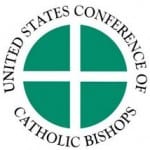 The U.S. bishops’ leader on domestic justice repeated his calls for Congress to resist proposed budget reductions that would cut funding to programs that help the most vulnerable members of society.
The U.S. bishops’ leader on domestic justice repeated his calls for Congress to resist proposed budget reductions that would cut funding to programs that help the most vulnerable members of society.“A just framework for future budgets cannot rely on disproportionate cuts in essential services to poor persons,” said Bishop Stephen E. Blaire of Stockton, Calif.
Rather, he said, it requires “shared sacrifice by all,” through means including “raising adequate revenues, eliminating unnecessary military and other spending, and addressing the long-term costs of health insurance and retirement programs fairly.”
Bishop Blaire, who chairs the Committee on Domestic Justice and Human Development for the U.S. Conference of Catholic Bishops, penned a May 8 letter to members of the U.S. House of Representatives as they prepare to vote on a reconciliation package for the fiscal year 2013 budget.
Bishop Blaire has actively spoken up during ongoing budget discussions in Congress. He has previously written letters asking elected representatives to avoid cutting funding to programs that help the poor.
He repeated many of his previous views in his May 8 letter, urging members of Congress to evaluate budget proposals based on the “moral criteria” established by the U.S. bishops.
These criteria call for budget decisions to be assessed on whether they protect or threaten “human life and dignity” and upon the impact they have on the most needy, including the poor, hungry and homeless.
In addition, the bishops’ criteria acknowledge that government and other institutions have a “shared responsibility” to work for “the common good of all,” particularly ordinary families and workers affected by a difficult economy.
Bishop Blaire pointed to three specific programs that have been targeted for budget reductions, saying these proposed cuts fail to meet a “basic moral test.”
He reiterated the bishops’ opposition to a proposal “that would alter the Child Tax Credit to exclude children of hard-working, immigrant families.”
The bishops’ conference supports the tax credit because it is both “pro-work” and “pro-family,” as well as “one of the most effective antipoverty programs in our nation,” he explained.
Preventing this credit from applying to children of poor, working immigrant families, most of whom are American citizens, would increase poverty and harm vulnerable members of society, he said.
Bishop Blaire also called on the House of Representatives to avoid cuts to the Supplemental Nutrition Assistance Program, previously known as food stamps.
He said that the program offers “vital food security” to financially struggling families, and that the proposed cuts would deny aid to an estimated two million families, while cutting benefits for others.
“No poor family that receives food assistance would be unaffected, constituting a direct threat to their human dignity,” he said.
“If savings in agricultural programs need to be achieved, subsidies and direct payments can be reduced and targeted to small and moderate-sized farms,” he suggested.
Furthermore, the bishop said, Congress should not cut the Social Services Block Grant, which serves as “an important source of funding” for programs across the country that aid the most needy, including the homeless, elderly, children, disabled and victims of abuse.
Bishop Blaire acknowledged the “serious deficits our country faces” but cautioned that “deficit reduction and fiscal responsibility efforts must protect and not undermine the needs of poor and vulnerable people.”
He once again urged members of the House of Representatives to work towards “responsible deficit reduction” that draws “a circle of protection” around the essential programs that serve the most poor and vulnerable.
Read more: http://ewtnnews.com/catholic-news/US.php?id=5429#ixzz1umfuZw97
- US bishops call for budget that reduces deficit, protects poor
- Bishops urge ‘Super Committee’ to remember poor in budget debate
- US bishops’ conference largely disappointed by debt ceiling agreement
- Catholic groups warn against cutting aid during East African drought
Tags: Advocacy, Anti-poverty strategies, Budget, US Bishops, USCCB
